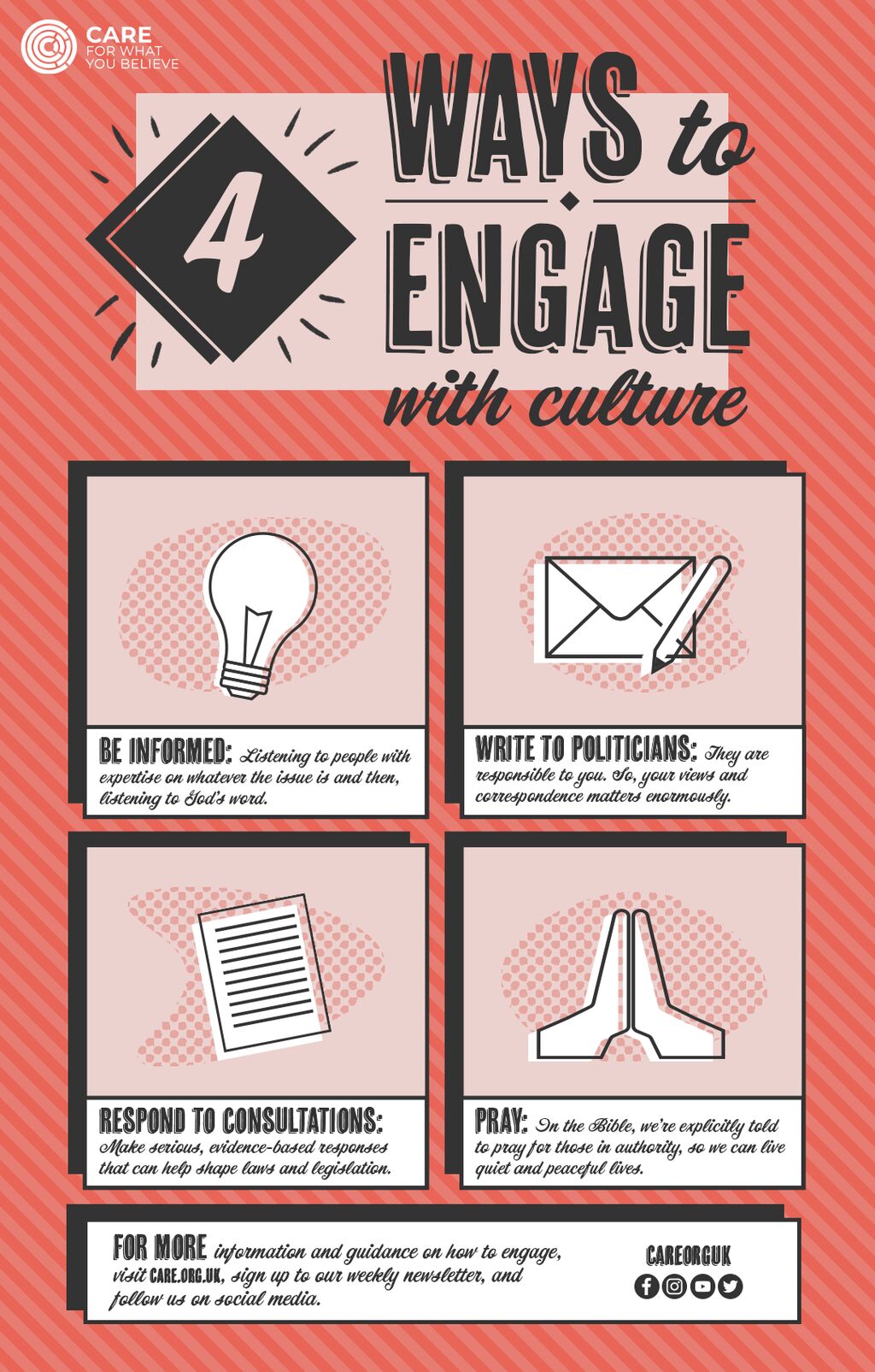Discover 4 ways to engage with culture at a national level

It’s the million-pound question. You’re in total agreement that Christians should engage with culture. But what you want to know is how? Here are four practical ways you can take action.
CARE is particularly passionate about equipping Christians to see their responsibility under God to engage with politics. After all, all laws have day-to-day impact in the lives of our neighbours, sometimes for good, but sometimes for evil.
God calls us to love our neighbours as we love ourselves and one way, we can express this love is by engaging with laws, speaking out for what God has said is good and objecting to what we know will cause damage.
Everything is ultimately political. So, we simply cannot ‘disengage’.
1. Be informed
There are so many complex issues to try and get our heads round. Being informed means we’ll be better equipped to engage in the public square. We want to be informed both about the issue itself – whether that’s modern slavery, abortion, racism, gender-based violence, freedom of expression, conversion therapy and so on – and about the Biblical touchpoints to help shape our thinking. A ‘double listening’ and a ‘double thinking’ needs to happen. Listening to people with expertise on whatever the issue is and then, listening to God’s word. Being informed is also more than a solo activity. It’s something you can do with others – reading articles, discussing, and allowing ‘iron to sharpen iron’.
2. Write to politicians
There’s simply no substitute for this. It might not always appear the most attractive option and it won’t always yield immediate results. But MPs are first and foremost elected by you. They are responsible to you. So, your views and correspondence matters enormously. By writing, or emailing, or visiting your MP in person, you’ll be engaging in public debate on matters of both national and local concern. Be proactive, reach out and ask your MP how you might pray for them. You can also make sure you thank them for positive developments, as well as speaking out when things are going wrong.
3. Respond to consultations
Another key, democratic tool is consultations. They allow members of the public and organisations to express views on a variety of different policy suggestions. By using expert advice from groups like CARE, you’ll be equipped to make serious, evidence-based responses that can help shape laws and legislation. Again, this is something that can be done with others. Although it’s true consultations are sometimes all too easily ignored, it’s still a way and means of getting truth into the public square.
4. Pray both personally and as a church
In the Bible, we’re explicitly told to pray for those in authority over us (1 Timothy 2:1-2). Not only is this something the Apostle Paul commands us to do all the time, it’s in the context of the gathered church. So, let’s model this in our churches. Make sure service leaders pray for the local MP and for the Prime Minister, the Cabinet, and the Government. The Apostle Paul explicitly tells us: this pleases God and we're to do it so we can live quiet and peaceful lives. In other words, there's a connection between our prayers and the peace we enjoy nationally.

Download your copy of our infographic here






